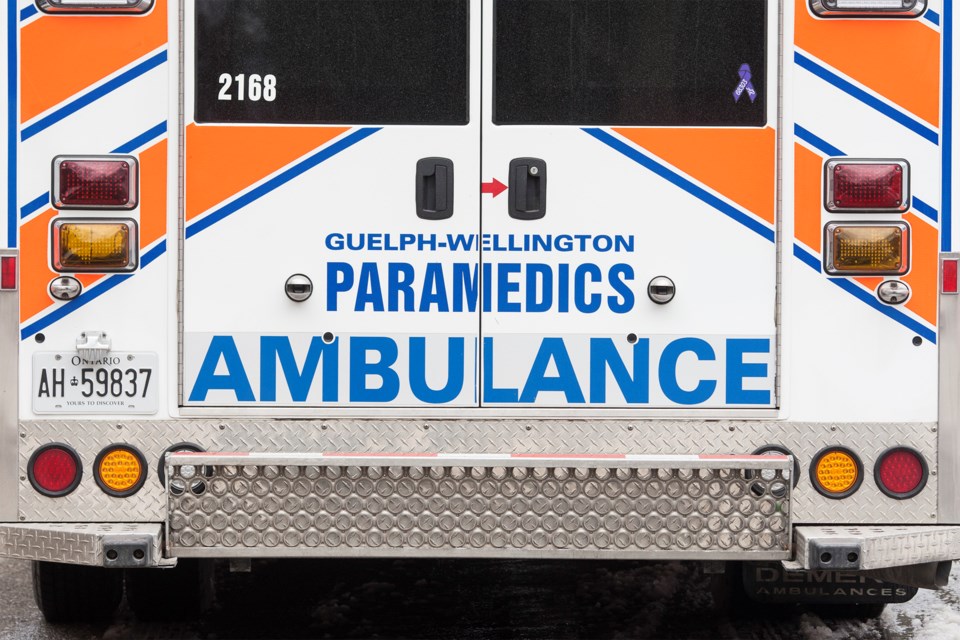WELLINGTON COUNTY – Serious ambulance station upgrades are required to accommodate Guelph and Wellington County's projected needs over the next 10 years.
Presented by paramedic chief Stephen Dewar at a Joint Social Services and Land Ambulance Committee meeting Wednesday afternoon, a recent report by Operation Health in Research Limited (ORH) has projected Guelph and Wellington County will require additional staff and ambulance deployment as well as service expansion investments "to at least maintain the current level of service" over the next decade.
Considering planned development, population growth and increases in emergency calls in Guelph and Wellington, the report projects a "substantial" 52 per cent increase in call volume from 2024 to 2034. This represents an annual increase of 4.3 per cent.
To address the projected need, hiring 40 additional frontline paramedics, associated ambulances and equipment is recommended in the next 10 years which will require additional backfill staffing, support and supervisory staff. The report said this will be phased into a multi-year plan being developed by city staff.
New response time targets of 11 minutes in Guelph; 12 minutes and 30 seconds in Centre Wellington; 16 minutes in Guelph/Eramosa, Wellington North and Minto; and 18 minutes in Erin, Puslinch and Mapleton were also proposed to allow "more appropriate and equitable" service delivery.
"However, it is not possible to house these additional resources within Guelph Wellington Paramedic Service's (GWPS) current facilities due to capacity constraints," said staff in the report. "This is true even if GWPS was aiming only to maintain performance at existing levels."
Staff said capacity constraints can be "offset somewhat" by relocating ambulance stations in Erin, Guelph Eramosa, Minto, Mount Forest and Centre Wellington as well as adding a new response location in Puslinch.
Stations in Arthur and Mapleton are determined to be in the approximate right locations but "do not have the capacity required in the future."
"Prioritization sequence of new station construction may be dictated by land availability and proximity to the identified optimal locations, among other factors," said staff in the report.
As a "suitable location" has already been determined for a new Arthur station, staff said it may be "beneficial" to proceed with constructing it sooner than the proposed 2034 date. Once constructed, the paramedicine program would be relocated from Drayton's "aging facility" to Arthur.
Erin and Guelph Eramosa's stations are currently scheduled to be completed by 2028 to accommodate the increased staffing planned for the locations while Harriston and Mount Forest stations are scheduled for 2030.
This is in addition to the Guelph paramedic station planned to be constructed on Speedvale Avenue in 2026.
"It is evident from ORH's simulations that failure to implement these necessary changes will lead to a significant decline in response time performance over the next decade," said staff in the report. "Acting upon these recommendations is crucial to ensuring the continued effectiveness and success of the GWPS in meeting the evolving needs of the community."
To be about 3,400 square feet apiece, each station will cost approximately $1,390 per sq. ft.
When county coun. Gregg Davidson asked whether any funds have been put in reserves for the builds, county treasurer Ken DeHart said no money has been set aside yet although it is in the forecast.
The full report is available here.
Isabel Buckmaster is the Local Journalism Initiative reporter for GuelphToday. LJI is a federally-funded program.
